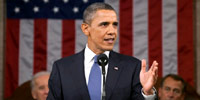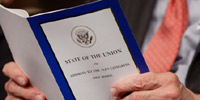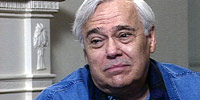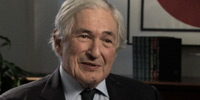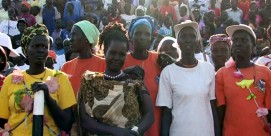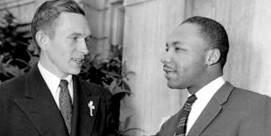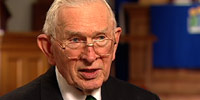Does “winning the future” assume America can manage history as it unfolds? If so, it is a pretentious and dangerous position for any nation to believe in as a matter of religious or political destiny—or both. More
Mainstream Protestantism has declined sharply in the US, but the big speeches of our political leaders still routinely echo the Protestant history of the nation. More
All the great religious creeds, said writer Reynolds Price, “have known forever that if we’re ever to arrive at the state of anything called wisdom, pain seems to be the way we get there.” More
Faith communities have an important role to play, says Paul Helmke, president of the Brady Campaign Against Gun Violence, in raising moral issues about gun laws and policies. More
“I think it’s fair to say that Islam has had some difficulty in coming to terms with modernity,” says sociologist of religion William Martin, who believes that the Gülen movement “offers a much more positive picture of what Islam can be.” More
Listen to this week’s show. More
“The most broadly based access to the developing world is through religious people,” says the former president of the World Bank, “and so it is a tragedy if they are not embraced in the overall development process.” More
During decades of civil war in Sudan, says John Ashworth of Catholic Relief Services, the church was the only institution on the ground with the people, and because of that it gained huge moral authority. Now South Sudan is voting in a referendum for independence from the Muslim-majority national government in Khartoum. More
During the Montgomery bus boycott “it was black Christians teaching white Christians what it mean to be Christian,” says a white Lutheran pastor who joined with Martin Luther King Jr. and others to change the world. More
Watch much more of our conversation with Rev. Robert Graetz, who calls the Montgomery bus boycott a spiritual movement based on love and nonviolence that changed the hearts of people across the country. More
Religion & Ethics NewsWeekly
X


